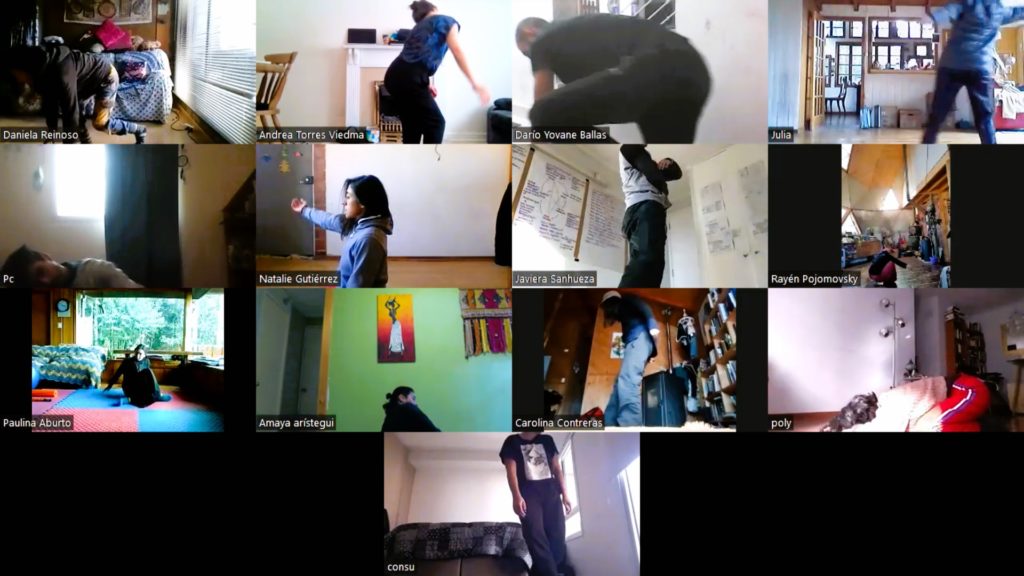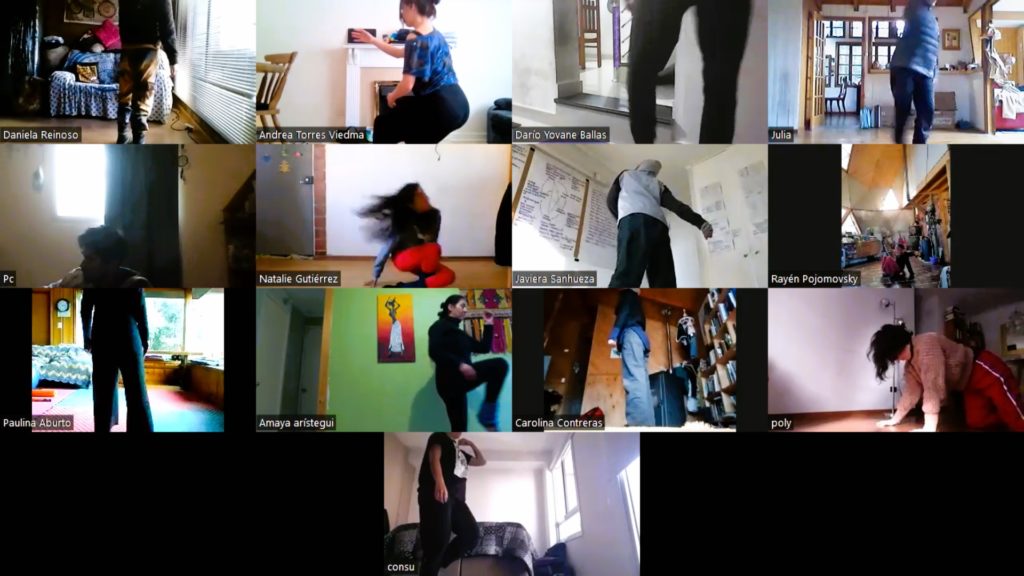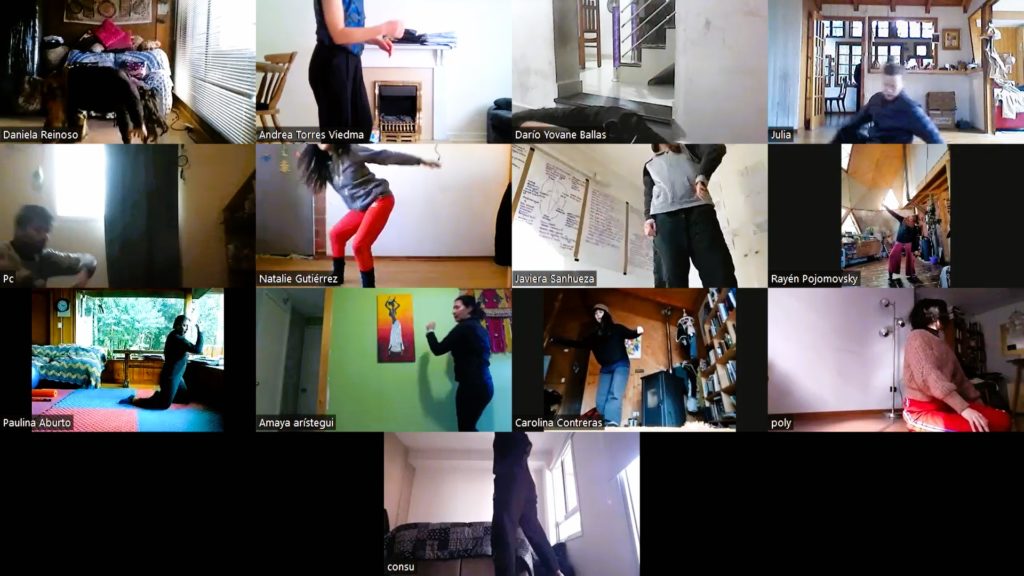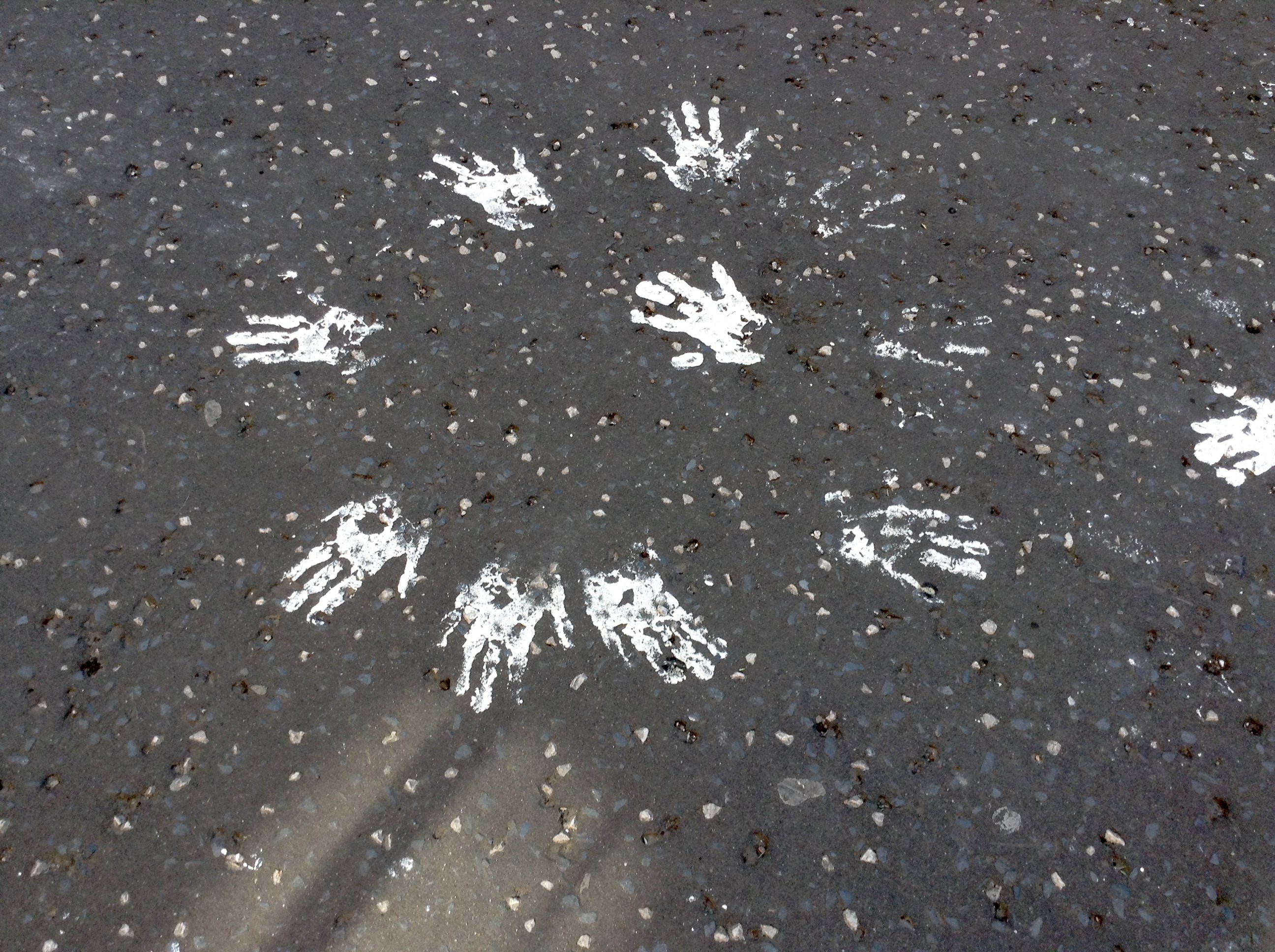The research is focused on the notion of parar, Spanish word that in Eglish means both to stop and to stand up, along with the notions of encounter, and community, in the specific context of contemporary dance practices in Chile––mainly improvisation––in the 21st century.
By adopting a practice-as-research methodology, this research elaborates a contemporary dance improvisation practice based on an overarching structure that integrates several types of encounters, in which to investigate strategies for moving together responsibly in the Chilean context. The practice considers scores based on ‘parar’ as a strategy to ignite attention to ‘difference’, beyond immediate responses. The encounters are devised for experimenting improvisation as movement relations that respond to a sense of community.
The practice is devised by drawing connections from a number of references (practical/academic) that consider dance artists’ and scholars’ research on contemporary dance practices in Chile and Latin America; feminisms from Abya Yala and Andean thought together with some western references that look at relational approaches to social life; my own experience as a Chilean dance artist and reflections on the elements that I identify as relevant; as well as the reflections of a number of dancers/movement practitioners from three different cities that take part in this study, these are the Colectivo de Danza La Manada (city of La Serena), the Compañía Danza Reverso (city of Puerto Montt), and the Grupo Contacto Improvisación Universidad de Chile (city of Santiago).



I have participated in several events in which I have shared and deepened some of the research ideas and proposal. Some of the presentations I have made are:
- Parar juntes: temporalidades diversas en la improvisación [Stop/stand together: diverse temporalities in improvisation]
- Parar y encuentro: proposiciones para una practica de movimiento compartida [Stop/stand and encounter: propositions for a shared movement practice]
